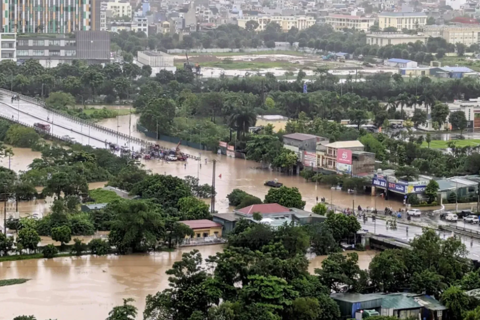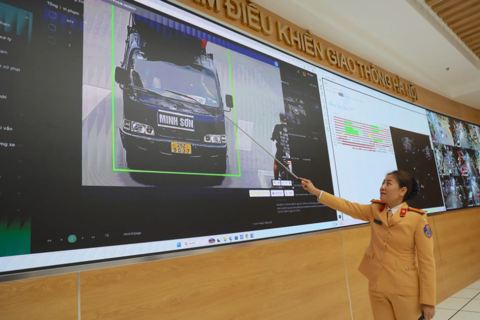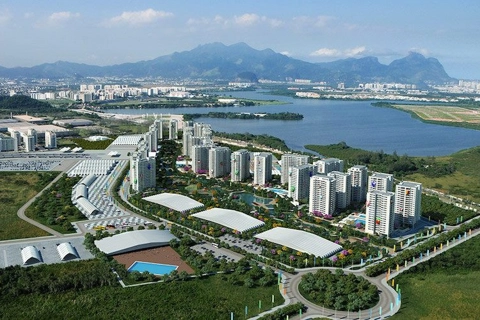Hanoi to restrict motorbikes in four central districts by 2030
The decision, rooted in 2017, signals Hanoi's firm commitment to transforming the capital into a cleaner place.
THE HANOI TIMES — As part of a plan to curb traffic congestion and air pollution, Hanoi authorities are moving forward with a scheme to restrict motorcycles in four inner-city districts by 2030.
Hanoi People’s Committee Chairman Tran Sy Thanh on June 9 reaffirmed the city’s resolve to implement the Low Emission Zone (LEZ) policy in four central districts of Ba Dinh, Hoan Kiem, Dong Da, and Hai Ba Trung during a meeting with the Vietnam Association of Motorcycle Manufacturers (VAMM).
Outlined in 2017 by the Hanoi People’s Council, the plan aims to reduce fossil fuel-powered vehicles, starting with motorcycles and eventually extending to cars. “This is not a spontaneous decision,” Thanh emphasized, noting that the policy has been in development for over seven years.
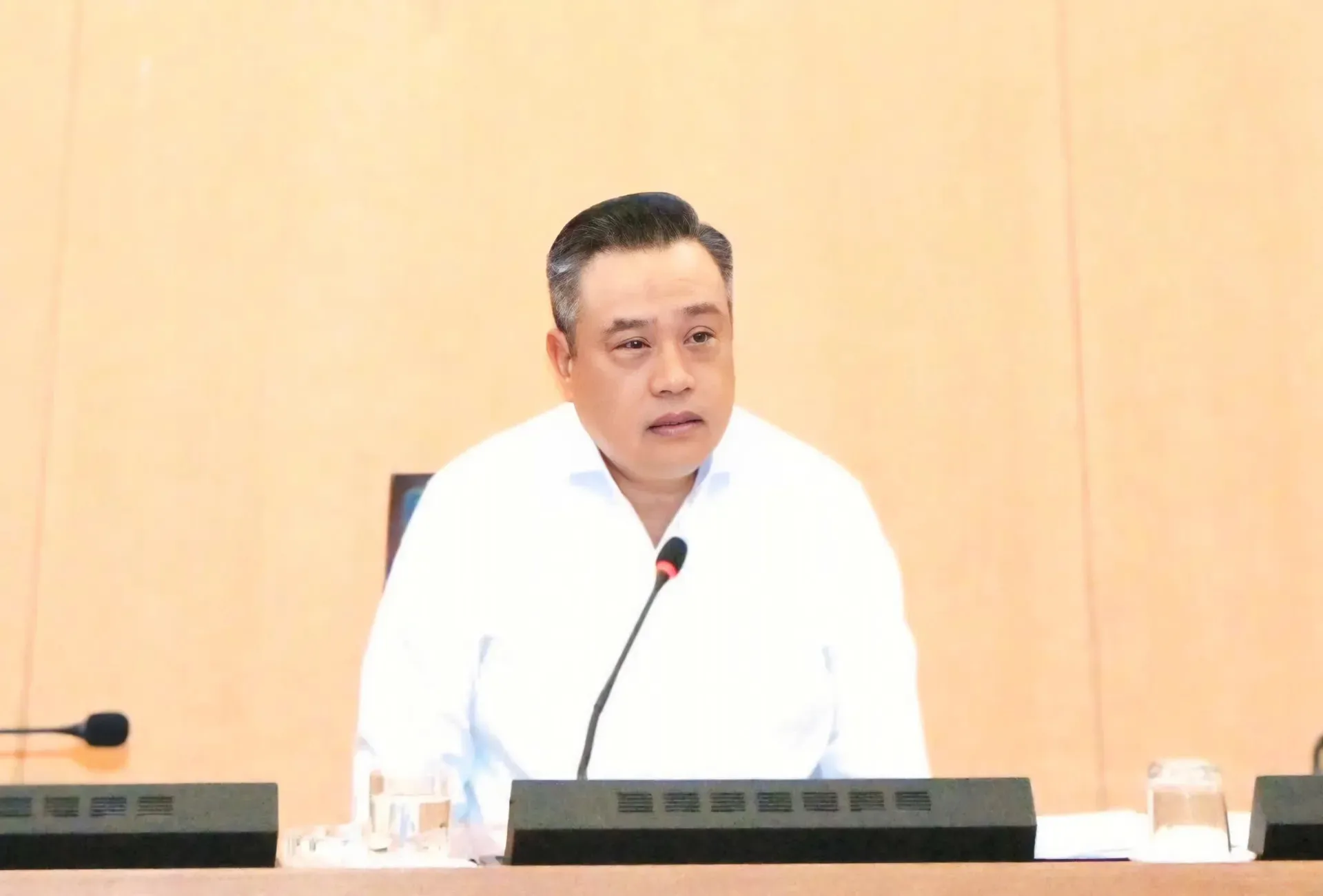
Hanoi People’s Committee Chairman Tran Sy Thanh during a meeting with the Vietnam Association of Motorcycle Manufacturers (VAMM) on June 9. Photo: Hong Thai/The Hanoi Times
Under its new LEZ policy, Hanoi will ban heavy diesel trucks and restrict cars and motorcycles that fail to meet strict emission standards - Euro 4 for cars and Euro 2 for motorcycles. High-emission vehicles will also face entry fees in designated zones.
A pilot program will run from 2025 to 2030 in parts of Hoan Kiem and Ba Dinh districts, with full enforcement across all qualifying districts by 2031.
While acknowledging the deep-rooted cultural role of motorcycles in Vietnam, Thanh said a gradual shift toward a cleaner, more modern urban environment is necessary. To support this transition, Hanoi is ramping up investment in public transportation, aiming for it to handle 45–50% of passenger traffic within Low Emission Zones by 2030.
"We plan to fully convert its bus fleet to electric or green energy vehicles by 2030 and complete ten urban railway lines totaling over 400 kilometers by 2035," said Thanh.
At the meeting, Sayaka Arai, VAMM Chairwoman and Honda Vietnam Director, raised concerns about the transition's potential impact on millions of residents who rely on motorcycles for daily commuting and their livelihoods.
With over 6.9 million motorcycles in Hanoi and an additional 1.2 million from neighboring provinces on the streets daily, she said the shift could affect 2,000 dealerships, 200 suppliers, and hundreds of thousands of workers.
Arai also pointed out challenges such as insufficient charging infrastructure and the high cost of electric motorcycles. She urged the city to adopt a feasible roadmap, with the earliest transition starting from 2030. The VAMM Chairwoman also proposed cleaner gasoline-powered options, including Euro 4-compliant motorcycles and biofuels, to facilitate the transition.
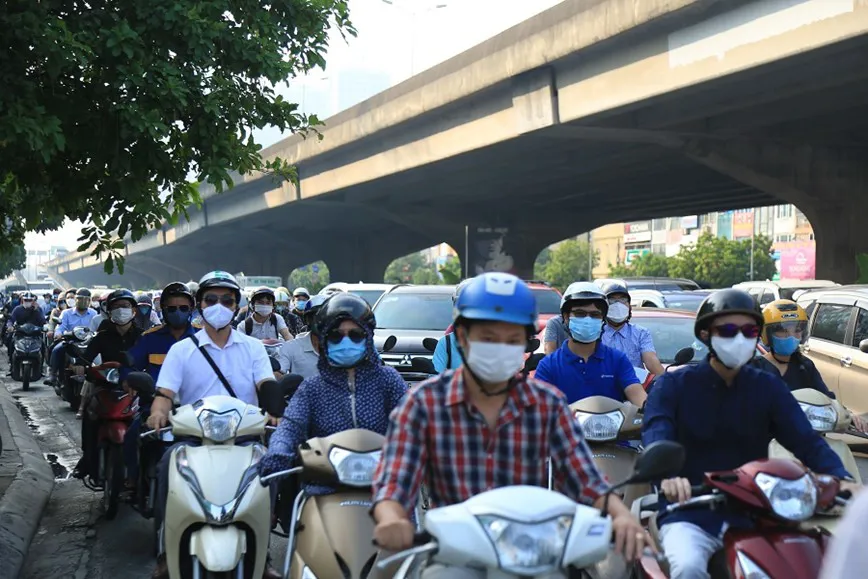
Over 6.9 million motorcycles in Hanoi and an additional 1.2 million from neighboring provinces roll on Hanoi's streets every day. Photo: Pham Cong/The Hanoi Times
To address these concerns, Thanh said that Hanoi is planning to invest in charging stations and safety standards for centralized charging areas, particularly in older apartment complexes.
The city has supported the transition to electric vehicles for residents. Hanoi's vision will align with global trends to garner support from Japan, the European Union, and other developed nations in bolstering public transportation infrastructure.
Stating that the people of Hanoi deserve to breathe fresh air and live in a sustainable city, Thanh called on VAMM’s key members, including Honda, Yamaha, and Piaggio, which hold over 95% of Vietnam’s motorcycle market, to support the shift to greener vehicles.







